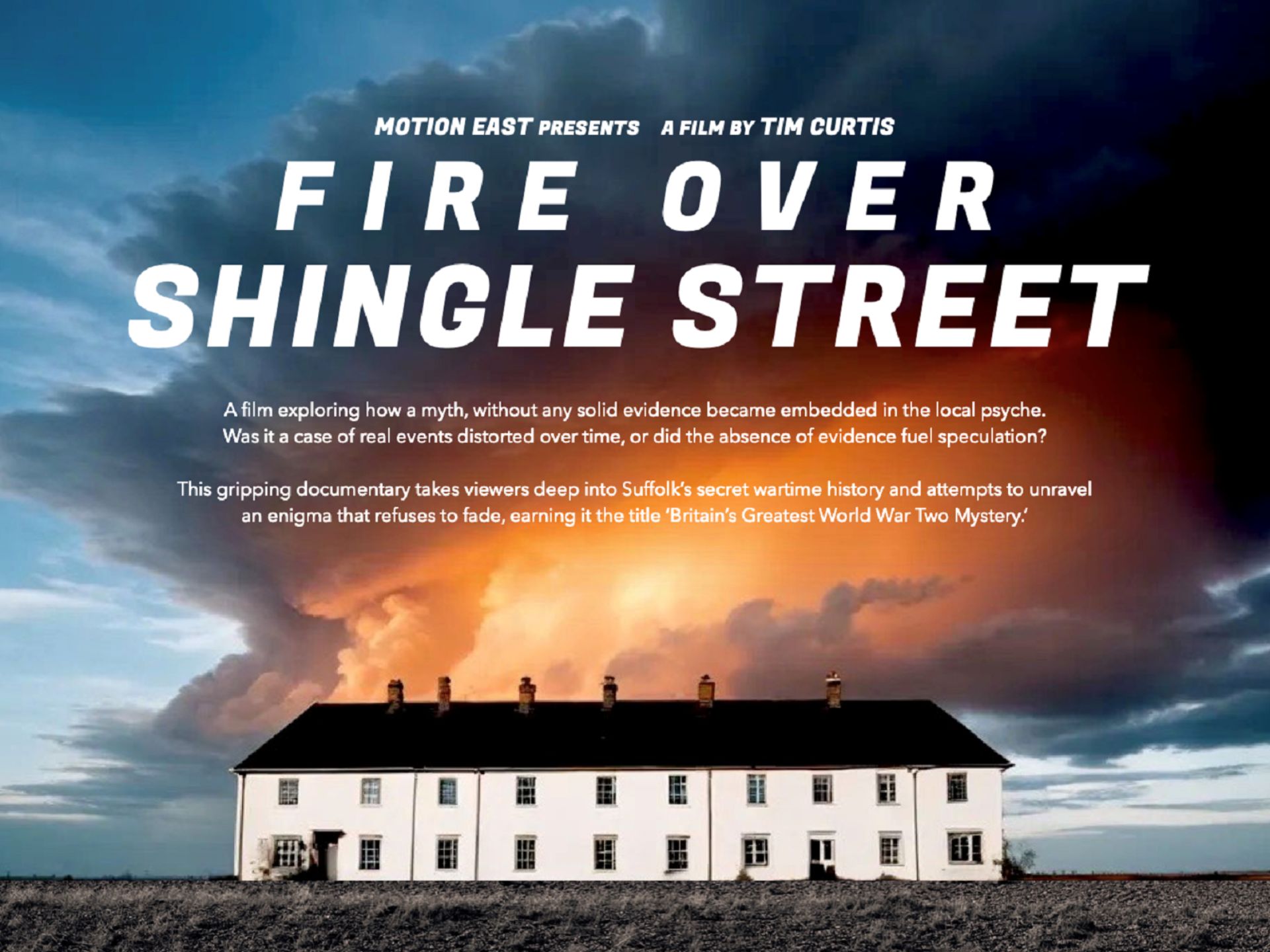


Fire Over Shingle
Street—Fact, Fiction, or Propaganda?
A
new documentary by Suffolk-based filmmaker Tim Curtis (Life on the Deben,
Stanley's War) delves into one of Britain’s most persistent Second World War
mysteries, asking: Has this enduring enigma been fully accounted for, or are
there still unanswered questions?
For
decades the Shingle Street ‘Mystery’ has divided the views of locals,
journalists and historians alike with incredible and unexplained stories of the
sea being set on fire, dead soldiers bodies on the beach and strange happenings
in the night.
Was
this remote stretch of Suffolk’s coast the site of a German invasion attempt?
Did British forces set fire to the sea with petroleum weapons to repel the
enemy? Or could it have been part of an elaborate wartime deception, designed
to maintain national morale?
The
film examines how the Suffolk coast was a hub of military secrecy—home to radar
development and experimental weapons testing. Did these classified operations
(with some still under wraps) combined with wartime propaganda help create the
perfect conditions for rumours to fuel a wartime mystery?
The
Shingle Street ‘Mystery’ gained renewed attention in the 1990s when the East
Anglian Daily Times was contacted by an ‘MOD Whistleblower’ claiming to have a
file—soon to be destroyed—detailing a horrific accident in which British
soldiers had been killed in a training exercise.
The
ensuing media frenzy led to the early release of classified documents from the
National Archives at Kew. However, the files revealed little, sparking claims
of a cover-up.
This
gripping documentary takes viewers deep into Suffolk’s wartime history, and
attempts to unravel a mystery that refuses to fade.
WE FOUGHT THEM IN GUNBOATS (27 MINUTES)
Felixstowe’s
pivotal role in the protection of coastal convoys during the Second World War
is highlighted in a new short film, We Fought them in Gunboats, based on
the memoirs of war hero Robert Hichens who was killed in action in 1943.
The film by
Suffolk-based filmmaker Tim Curtis, will be screened for the first time on
Remembrance Sunday, November 12th, at the Riverside Cinema, Woodbridge.
It tells the
story of the Motor Gun Boats and Motor Torpedo Boats, based at HMS Beehive,
which is now part of the Port of Felixstowe. These small craft and their
volunteer crews, heroically engaged larger and more powerful German E-Boats,
which sought to wreak havoc with Britain’s coastal convoys.
The very personal
account of this story is told by Robert Hichens in the book We Fought Them in
Gunboatswhich was recently published for the first time as an
uncensored edition by East Anglian author and publisher Julia Jones.
“The book is the
de-censored, de-edited version of the text written by an exceptional individual
– an officer from the volunteer reserve – on active service from HMS Beehive,
the coastal forces base at Felixstowe,” notes Julia Jones.
The film uses
archive material and interviews to explain and highlight both the role of HMS
Beehive and the crews, among them Robert Hichens, who risked their lives in
what became known as the ‘Spitfires of the Sea’.
“It’s a very
powerful story which highlights the role of Beehive and those such as Robert
Hichens who sailed out of Felixstowe to protect our coastline,” adds Tim Curtis.